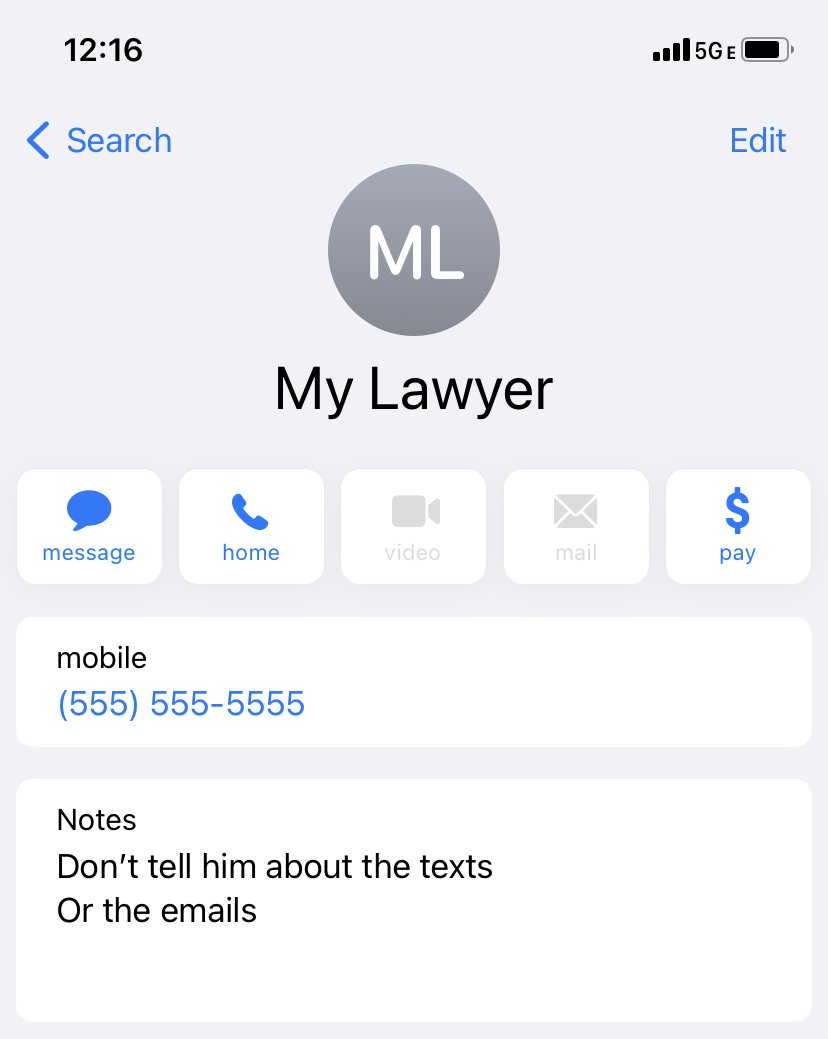You Really Said That With Your Outside Voice?
With all due respect to my judge friends, I think most of us who litigate have been tempted to ask, “are you serious, judge?” in court at one point or another. But (I would hope) most of us know better than to actually say it out loud.
Enter Todd Banks of Queens, New York, who seems to have a problem with a lot of things (but apparently no problem talking about them).
First, he has a client, Robert Doyle, with an, erm, interesting dilemma. Client is also a lawyer, who wants admission to the Eastern District of New York. Like many bars, E.D.N.Y. requires its applicants to file an affidavit from a “sponsor,” an attorney who has already been admitted to the bar, to vouch for the applicant’s character and fitness. The E.D.N.Y. affidavit is here and it is not particularly complex. But Banks suggested in his brief (which is not linked anywhere yet and I can’t upload it here, I’ll update when I can), that in order to get a character affidavit, Doyle would need to engage in Risk[y] Necessary Activities About His Personal Beliefs, yes with caps and everything. Or something.
“Doyle is ready, willing, and able to comply, and wishes to comply, with each requirement of Local Rule 1.3(a), except the Affidavit Requirement,”id., ¶ 23 (A-10); that “Doyle believes that, in order for him to enable a member of the bar of the Eastern District (a ‘Sponsor’) to provide a reasonably accurate assessment of Doyle’s character, Doyle would be required to engage in certain activities (the ‘Necessary Activities’),” id., ¶ 24 (A-10); that “[t]he Necessary Activities include Doyle’s disclosure, to a Sponsor, of Doyle’s beliefs regarding philosophical, religious, political, social, moral, and ethical matters (‘Doyle’s Personal Beliefs’),” id., ¶ 25 (A-10); that “[t]he Necessary Activities include Doyle’s disclosure, to the Sponsor, of a sufficient number of experiences of Doyle that demonstrate consistency, or inconsistency, with any of Doyle’s Personal Beliefs,” id., ¶ 26 (A-10); that “[t]he Necessary Activities include Doyle’s disclosure, to the Sponsor, of Doyle’s thoughts about a sufficient number of the Sponsor’s beliefs regarding philosophical, political, religious, social, moral, and ethical matters (the ‘Sponsor’s Personal Beliefs’),” id., ¶ 27 (A-10); that “[t]he Necessary Activities include Doyle’s disclosure, to the Sponsor, of a sufficient number of experiences of Doyle that demonstrate consistency, or inconsistency, with any of the Sponsor’s Personal Beliefs,” id., ¶ 28 (A-10 - A-11); that “Doyle’s belief that he would have to engage in the Necessary Activities in order for him to enable a Sponsor to provide a reasonably accurate assessment of Doyle’s character (‘Doyle’s Necessary-Activities Belief’) is a belief that Doyle holds sacredly,” id., ¶ 29 (A-11); and that “Doyle’s Necessary-Activities Belief is fundamental to Doyle’s self-identity.” Id., ¶ 30 (A-11).
Doyle also alleges that “[i]t would be virtually impossible for Doyle to engage in the Necessary Activities to a degree that would avoid the non-negligible risk (the ‘Risk’) that the Sponsor would be untruthful in stating ‘what the [Sponsor] knows of[] [Doyle]’s character,’” id., ¶ 31 (A-11), quoting Local Rule 1.3(a), but that “Doyle believes that taking the Risk would be immoral,” id., ¶ 32 (A-11); that “Doyle’s belief that it would be immoral to take the Risk (‘Doyle’s Risk-Related Belief’) is a belief that Doyle holds sacredly,” id., ¶ 33 (A-11); and that “Doyle’s Risk-Related Belief is fundamental to Doyle’s self-identity.” Id., ¶ 34 (A-11).
(Appellant Brief at 4-5.) Got that? Sure. Anyway. One has to wonder exactly what Atty. Doyle doesn’t want to disclose to a potential sponsor, especially given that the affidavit form requires the affiant to attest to precisely nothing regarding Doyle’s personal beliefs. And, generally, lawyers are allowed to have whatever personal beliefs they want, so long as they can follow the rules. I’m trying to parse out what he’s saying here, and the most charitable explanation I can come up with is, “This bar is full of [ethnic or religious group I don’t like] and in order to get a sponsor I’d have to find someone who is [part of ethnic or religious group I don’t like] and if that person knew I didn’t like [ethnic or religious group I don’t like] they wouldn’t vouch for me.”
It’s a novel argument (the brief is full of them, all sorts of constitutional and nondelegation arguments, it’s all in there). These novel arguments predictably failed at the trial court level and are going to fail at the Second Circuit. They should fail because they are objectively terrible arguments, but they also will fail because Attorney Banks managed to get himself kicked out of oral argument after mouthing off to the panel. (There’s audio on the Law 360 page, and it’s amazing.)
As an aside, Doyle isn’t Banks’ only problem. Earlier this week, he lost an IP challenge at the Federal Circuit, wherein the court determined he (appearing pro se) lacked standing to challenge a trade dress held by the beloved Al Johnson’s restaurant in Sister Bay (Door County), Wisconsin. Al Johnson’s is known for its grass roof, where goats graze on nice days. It’s such an icon that Goats on the Roof has been registered as a trade dress. Banks, somehow, decided to sue to cancel this registration, on the sole articulated basis that the dress
“is demeaning to” goats, which, in turn, “is offensive to [Mr.] Bank and denigrates the value he [and others] place[] on the respect, dignity, and worth of animals.”
This argument went over with the Federal Circuit about as well as being snarked at went over with the Second Circuit, and the lower court’s dismissal was upheld.
Again, I have to wonder what possesses an adult holder of an advanced degree and a professional license to make an assertion out loud, where people can hear it, that literally anything is “demeaning to goats?”
Like all good Wisconsinites, we go to Door County on occasion and have eaten at Al Johnson’s a few times. The food is pretty good, leans Swedish and touristy (goat is not on the menu, but lingonberries are plentiful), there’s a gift shop and kitschy rocking chairs. The kids get a kick out of the goats, which don’t appear demeaned (and if I thought they did, I wouldn’t say anything out loud).






